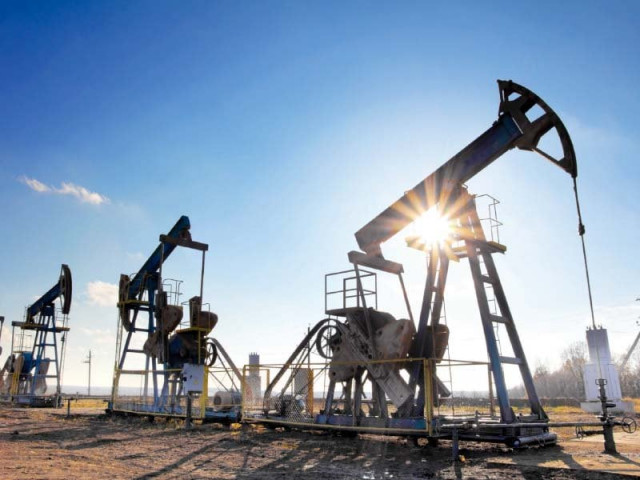Oil firms take back case against OGRA over fee dispute
The two sides are trying to reach an out-of-court settlement

PHOTO: REUTERS
OGRA continues to function without a quorum, raises legal challenges
The two sides are negotiating an out-of-court settlement on the new fee structure that has been in dispute since January 2016 when Pakistan Oil (Refining, Blending and Marketing) Rules 2016 were notified.
A six-member committee - three members each from both sides - has been in talks since January 2016. Ogra Chairperson Uzma Adil Khan led the regulator’s side while OCAC’s team was headed by Chairman Aftab Hussain.
According to sources, oil companies and Ogra are expected to sign an agreement as they have sorted out differences over changes to the 2016 rules and the fee structure.
So far, several meetings have been held between them. In these sittings, the regulator presented its proposals for the fee structure with annual collection target of about Rs150 million whereas the OCAC sought some amendments.
OCAC has demanded that all deregulated businesses of the oil industry should be exempt from fee and duties. Instead, it said, a fixed fee should be collected from all refineries and marketing companies irrespective of their size and sales volume.
OCAC proposes that fee and duties should be imposed on the basis of two principles.
First, a fixed fee of Rs2 million should be applicable to all companies including marketing companies, refineries and pipeline companies so that every company contributes equally.
Second, a variable fee should be imposed that will change on the basis of annual output ie actual production for refineries, actual pipeline throughput of fuel products for pipeline companies and actual sales of fuel products for the oil marketing companies (OMCs).
At the same time, non-fuel products, currently in the deregulated sector, like asphalt, jet-based oil, solvent oils, carbon oil, process oils, liquefied petroleum gas, lubricants and greases should be exempt from inclusion in the sales volume for fee calculation.
The industry has also suggested that any fuel product that is deregulated in the future by the government will also come out of the ambit of annual fee.
Ogra, on the other hand, is eager to generate revenues from the oil industry to meet its expenses.
The rules notified in January 2016 require all oil refineries, marketing companies and oil pipeline companies to pay Rs2 million in non-refundable fee for renewal, modification, extension, assignment, review, transfer, amendment, relocation or re-issuance of their licences.
OGRA proposes Rs2.96 per litre increase in petrol price
Oil blending or grease plants are to pay a fee of Rs50,000 while lubricant marketing companies are required to pay Rs1 million. Oil storage and testing facilities have to pay Rs100,000 and Rs500,000 in fee respectively.
All these enterprises are also required to pay 50% of licence fee for modification, extension, transfer or review of their licences.
On top of that, every refinery, OMC, lubricant marketing company and pipeline company is required to pay 0.005% of their gross sales. This fee, in particular, is being viewed by the oil industry as sales tax, which, it argues, could only be imposed by the government and is outside of the regulator’s purview.
The new rules also set the maximum validity of a refinery licence at 30 years and its renewal for a maximum of 15 years.
Published in The Express Tribune, June 10th, 2017.
Like Business on Facebook, follow @TribuneBiz on Twitter to stay informed and join in the conversation.


















COMMENTS
Comments are moderated and generally will be posted if they are on-topic and not abusive.
For more information, please see our Comments FAQ